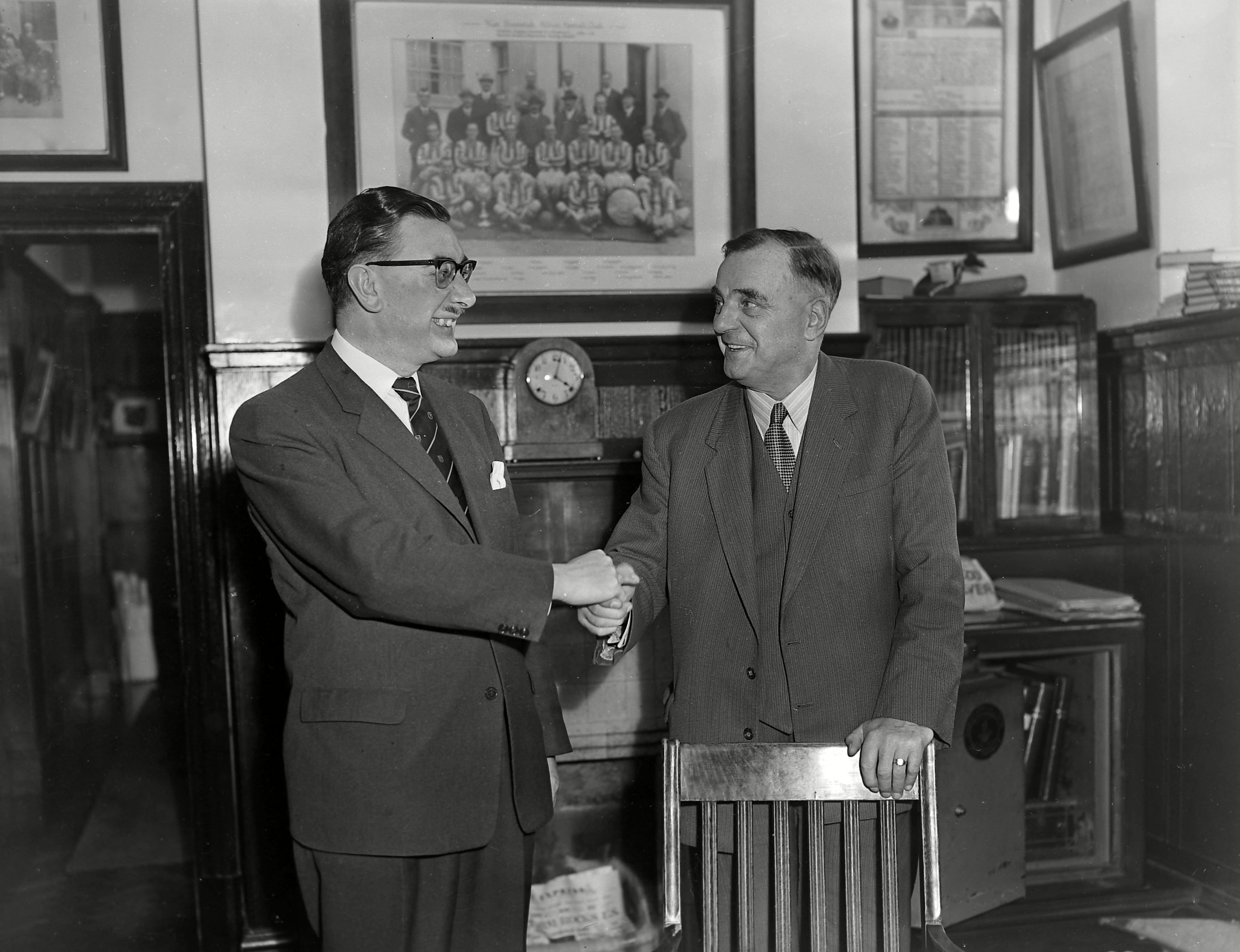10 | ALAN EVERISS: KEEPING IT IN THE FAMILY
We’ve talked about Fred Everiss in this series already – keep up, there’ll be a test later – but not only was he the man who invented the future at The Hawthorns, he future-proofed the club’s administrative functions too.
His assistant, Ephraim Smith, joined the Albion in 1906 and went on to succeed Fred as club secretary upon his retirement at the end of the 1947/48 season. By then, Eph was a member of the Everiss clan, having married Fred’s sister in 1911.
In post when Albion won the FA Cup in 1954, Eph presided over the arrangements for one of the most important developments that ushered in a new age, the installation of floodlights at The Hawthorns. He also had to organise he increasingly frequent foreign tour, including one to the Soviet Union in 1957.
Eph held the post of club secretary until his own retirement in 1960, whereupon the role was taken up by Alan Everiss, Fred’s son. Alan joined the Albion in 1933 and all but matched his dad’s longevity here, enjoying 20 years as secretary through to 1980 when he finally hung up the club fountain pen.
Where Fred had helped guide the club through the rapid expanse of the game in the early 20th century as organised football became a staple of the English way of life, Alan picked up the reins as the game was heading in a new direction with the advent of regular televised football just around the corner. European competition was something new that would be coming to The Hawthorns too, while there were more and more regulatory demands to deal with in terms of stadium safety, particularly as hooliganism became an increasing issue in the 1960s.
Tony Brown’s playing career coincided with Alan’s time as secretary, and Bomber had the highest regard for him.
“I knew Alan very well. He did a fantastic job here, he was absolutely immaculate in everything that he did. Alan had the club running like a well-oiled machine, like clockwork. Everything was just so completely under control, run smoothly, it was all spot on. Any problems that might crop up, Alan would be on top of it straight away and sorting it out. He was meticulous in everything that he did, left nothing to chance, he was on top of every little detail.
“A lot of the time, you dealt with him on contracts rather than anybody else – not that you got much say in those days! That attention to detail meant everything was done right, never any issues, no mistakes, no blunders, nothing like that. He was a very clever man, very experienced.
“During my time, the club started to jet off around the world a bit more, whether it was in the European competitions or for friendlies in China, the Middle East, America, wherever. I’m sure in those days, it wasn’t the easiest thing to get the paperwork done for trips like that, because they were so unusual then, but with Alan, you never had to worry, it was all in hand, so easy from our perspective as players.
“In truth, as far as the administration went, Alan virtually ran the club from top to bottom because there was only a handful of staff here in those days. He’d take the load off the manager and allow them to concentrate on the football. He had an assistant – initially it was Freddie Horne, then Ray Fairfax came in later on – and both of them learnt a lot from Alan, but he was always in charge, on top of things.
“To add to all that, he was a lovely fella as well, very easy to talk to, very well liked throughout the club. He had a dry sense of humour too. He was a real unsung hero of the football club.”
